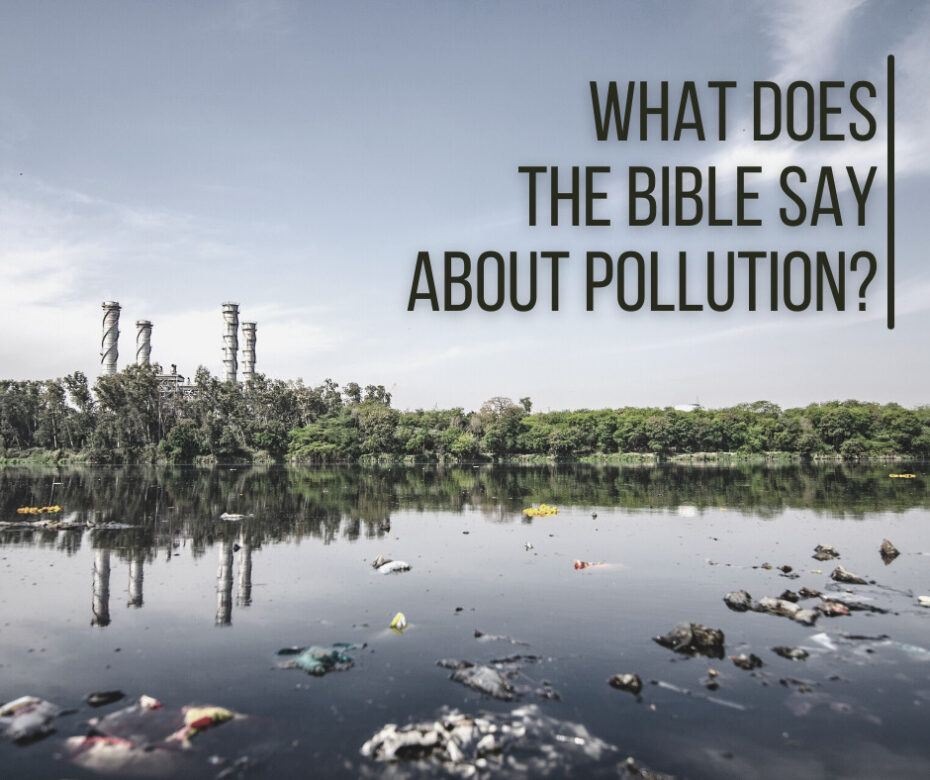Part of God’s creation mandate to mankind is that we are to have dominion over the earth: “Then God blessed them, and God said to them, ‘Be fruitful and multiply; fill the earth and subdue it; have dominion over the fish of the sea, over the birds of the air, and over every living thing that moves on the earth’” (Gen 1:28).
Does having dominion over the earth include being good stewards of the water, air, land, animals, and plants?
Victor Hamilton writes, in comparing Gen 1:28 to the creation account in Enuma Elish, the Babylonian creation epic: “There is nothing of the regal and the noble about him [man] such as we find in Gen. 1. Basically he is a substitute, one who is created from the blood of a rebellious deity. The anthropologies of Gen. 1 and the Enuma Elish [sic] could not be wider apart” (Genesis, Chapters 1-17, p. 140).
Man is given a vital, even noble task. Proverbs 12:10 says, “A righteous man regards the life of his animal, but the tender mercies of the wicked are cruel.” Our dominion over animals should include treating them well.
The reference to subduing the earth in Gen 1:28 refers to its cultivation to grow crops. While nothing is said directly about avoiding polluting the environment, the creation mandate implies it, and other verses support the idea. For example, Deut 20:20 says, “Only the trees which you know are not trees for food you may destroy and cut down, to build siegeworks against the city that makes war with you, until it is subdued.” The fact that fruit trees were not to be destroyed suggests care for the environment.
The Bible does use the words pollute and pollution. However, they are not used in reference to spoiling the air or water. They are used to refer to spiritual pollution via idolatry and the shedding of innocent blood.
For example, Num 35:33 says, “So you shall not pollute the land where you are; for blood defiles the land, and no atonement can be made for the land, for the blood that is shed on it, except by the blood of him who shed it.” The shedding of innocent blood would pollute the land.
Acts 15:20 refers to “things polluted by idols.” Similarly, Jer 2:7 says, “I brought you into a bountiful country, To eat its fruit and its goodness. But when you entered, you defiled My land and made My heritage an abomination.” Jeremiah 3:9 adds, “So it came to pass, through her casual harlotry, that she defiled the land and committed adultery with stones and trees.”
When he wrote of “the pollutions of the world” in 2 Pet 2:20, Peter broadened the idea of pollution to include all sinful practices.
There are no verses that specifically command us not to pollute the water or the air. However, it is a reasonable inference to draw from Gen 1:28 and Deut 20:20.
This could mean that it is a sin to drive a car that’s belching out a stream of blue smoke. Even driving a car that appears to have no excess emissions, but that testing reveals to be harmful, could be sin via willful ignorance.
Christians should care for the air, the water, and animals.i
In this sense, the climate change movement is compatible with Biblical Christianity.
However, there are aspects of the climate change movement that are inconsistent with Christianity and Free Grace Theology. We will consider those in the final blog in this series.
__________
i It is possible to take things too far. According to an April 16, 2022 Washington Post article (see here), an Evangelical Christian ecologist and his wife recently “installed an eco-friendlier heating, ventilation and air conditioning system that cost $13,000.” He explained, “Is it going to have any impact whatsoever? No, other than to drain our bank account. It’s not going to change [climate change] one iota…We do it because we feel it’s morally the right thing to do.” If they really believe that, then it would be far better to use that money for the Lord’s work. The same couple keep their home at 64 degrees in the winter, even though that makes their home less hospitable.


